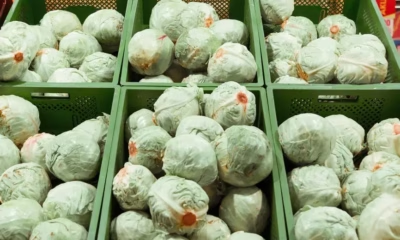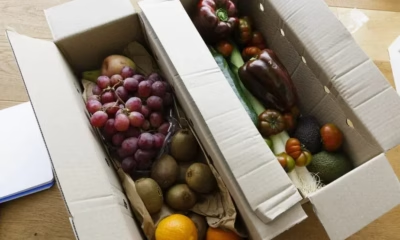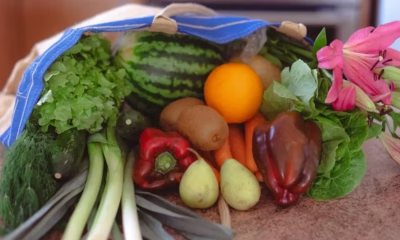Uncategorized
Strategies for Supermarkets to Build a Resilient Produce Supply Chain

A robust supply chain is the cornerstone of successful produce merchandising, ensuring efficiency, cost-effectiveness, and reduced waste. However, developing a resilient supply chain for fresh produce can be a challenging task due to its inherent complexities and the need for rapid and efficient systems.
According to Abe Eshkenazi, CEO of the Chicago-based Association for Supply Chain Management, fresh produce supply chains face unique challenges, including perishability, food safety concerns, and the need for adherence to strict quality standards and regulations. Seasonal fluctuations, weather disruptions, and evolving consumer preferences further complicate inventory management and supply consistency.
Strategies for Supermarkets to Build a Resilient Produce Supply Chain include addressing transportation and cold chain maintenance to preserve product quality and minimize spoilage. These systems must ensure proper temperature and humidity conditions throughout the logistics process to avoid significant losses.
Supermarkets must also prioritize sustainability and respond to environmentally conscious consumers by adopting practices that reduce carbon emissions. Collaboration and visibility across the supply chain are critical to improving operations. Eshkenazi highlights the importance of incorporating advanced technologies, such as real-time tracking systems, predictive analytics, and artificial intelligence, to enhance inventory management, improve forecasting, and identify potential disruptions early.
“By leveraging advanced tools, supply chain professionals can optimize decision-making and mitigate risks,” said Eshkenazi. Collaborative planning and effective communication further help allocate resources efficiently and enhance overall performance.
When selecting supply chain partners, produce retailers should emphasize reliability, financial strength, and shared values. “Financially stable suppliers reduce risks of disruptions and ensure consistent supply,” Eshkenazi added.
Additionally, investments in machine learning and predictive analytics can transform operations. For instance, some grocers now use AI to analyze produce freshness through photo recognition and deploy predictive systems to manage waste and streamline logistics.
Building a resilient supply chain not only ensures high-quality produce but also strengthens supermarket operations, creating a sustainable and efficient model for long-term success.





















